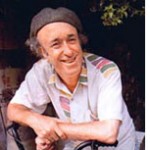By staff writer
The average person might not know what the initials CFP mean, but in
the world of university professors and independent scholars, a CFP is a
"call for papers" -- academic essays (with copious footnotes) about
sometimes arcane or sometimes pop culture subjects. You need a PhD to
write one.
As the new genre of cli fi -- novels and movies about climate change
and global warming, usually written with a moral imperative rather
than as mere entertainment -- continues to emerge in the global media
world, from NPR to TIME magazine to The New York Times, more and more
academic journals are getting into the act, too, calling for papers
about cli fi as a literary genre, cli fi as a literary meme, cli fi as
a literary motif, cli fi as just about anything pop culture observers
and university professors want to talk about.
Already, there are journals about cli fi published in Australia, the
UK and North America.
Here's one example:
"Nature strikes back! Genres of revenge in the anthropocene, " a
special issue of the "Australian Humanities Review". It was
edited
by Catherine Simpson and Nicole Matthews and is due out in the fall.
In their CFP the editors asked for 300 word abstracts with full papers be
submitted before March 15, 2014.
The editors explained their mission this way:
''Cli-fi (or climate fiction) has recently emerged as a new subgenre
'describing tales of imminent disaster as a consequence of anthropogenic
'climate change. If Rachel Carson's Silent Spring invoked nature
'extinguished, passive or defeated, these narratives of environmental change
'present an unexpectedly feral, unpredictable world where an aggressive
'nature runs rampant. In this special issue we hope to excavate the resources
'of popular genres for talking about risk, causality and the unintended
consequences of human action."
Simpson and Matthews added: "This issue will interrogate the ways we
narrate non-human agency. How do
these stories revisit the spectacle and power of the sublime? Can popular
culture help us re-imagine environments, objects and non-human animals in a
time of rapid ecological change? What is the affective potentiality of
narratives of hubris, revenge and fear? And how are whiteness, colonial
politics of 'natives' and 'non-natives', and border policing restaged across
these diverse and composite bodies? We invite theoretically, empirically
and/or textually grounded articles and welcome articles that locate
Australia in comparative or international contexts."
This was just one academic journal worldwide looking into the cli fi genre in
professorial ways. The meme is being repeated in other academic
journals in Britain, Canada, the U.S. and Denmark.
Academics such as Stepanie LeMenager at the University of Oregon and
Jon Christensen at UCLA are looking into the genre, too. Arizona State
University has recently invited novelist Margaret Atwood to give a
keynote speech on cli fi novels at a November 5 event, with Atwood
flying in from her home in Toronto for the evening speech.
Cli fi is no longer just a pop phenomenon, talked about on radio shows
and in newspaper forums. The "mushrooming" new genre, as New York
Times higher education reporter Richard Perez-Pena called it in his
news story on April 1, 2014 -- yes, April's Fools Day; go figure! --
is now mushrooming in the halls of academe as well, from Oxford to
Harvard, from Princeton to UCLA.
There are calls for papers. There are calls for action, too. Climate
change issues are just too important to ignore in the national discussions
taking place in political capitals around the world now. The Earth is
on fire. Our descents down the road need our help. Now. Time is
running out. And academics are answering the call - the calls for
papers and the calls for action.
It's about time.






